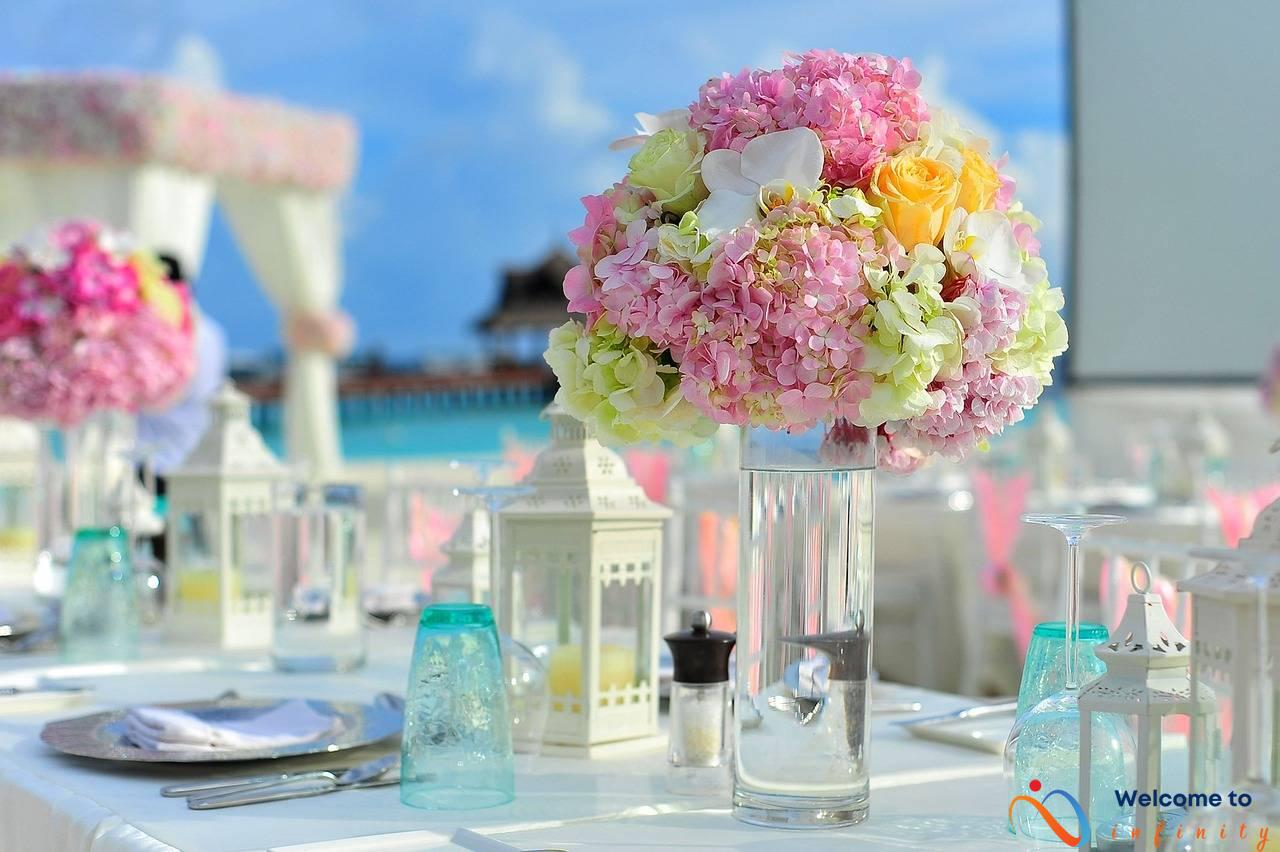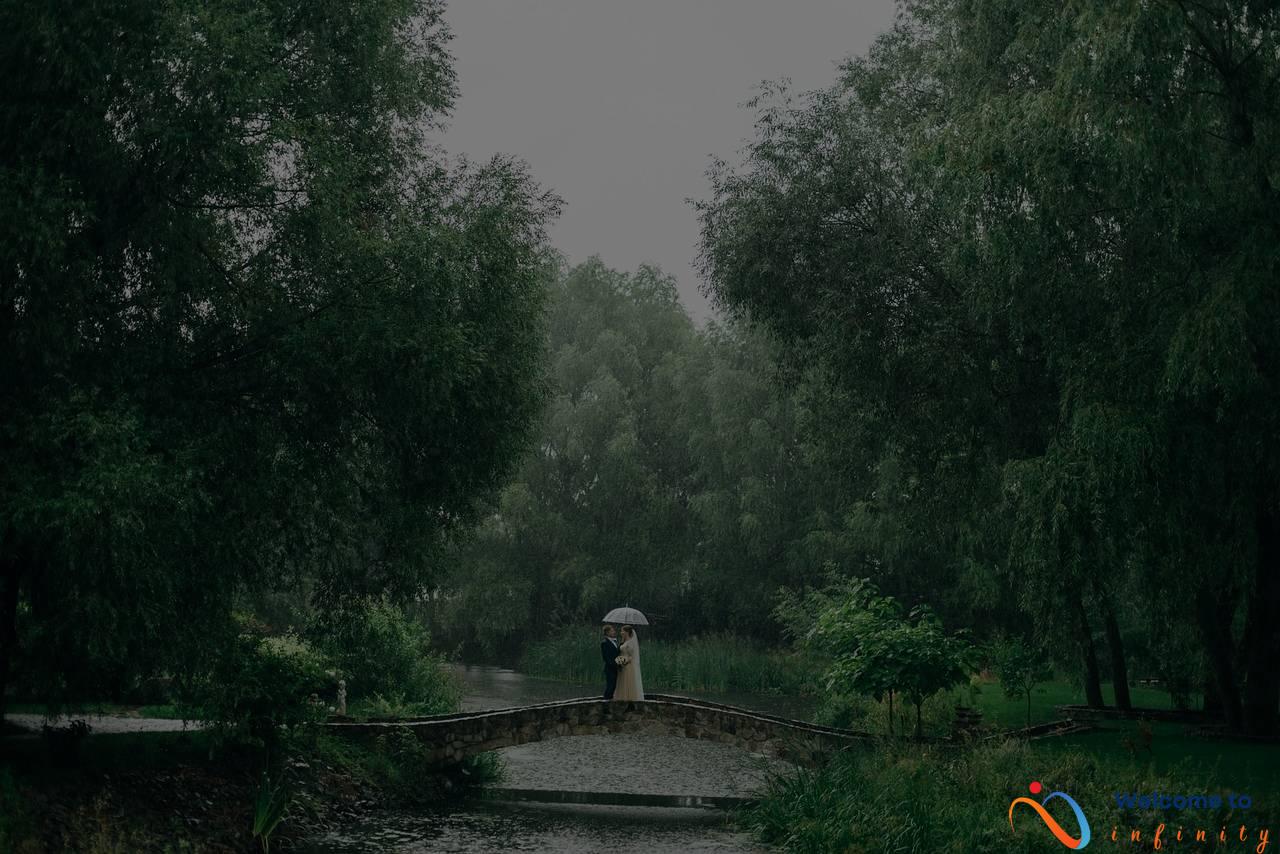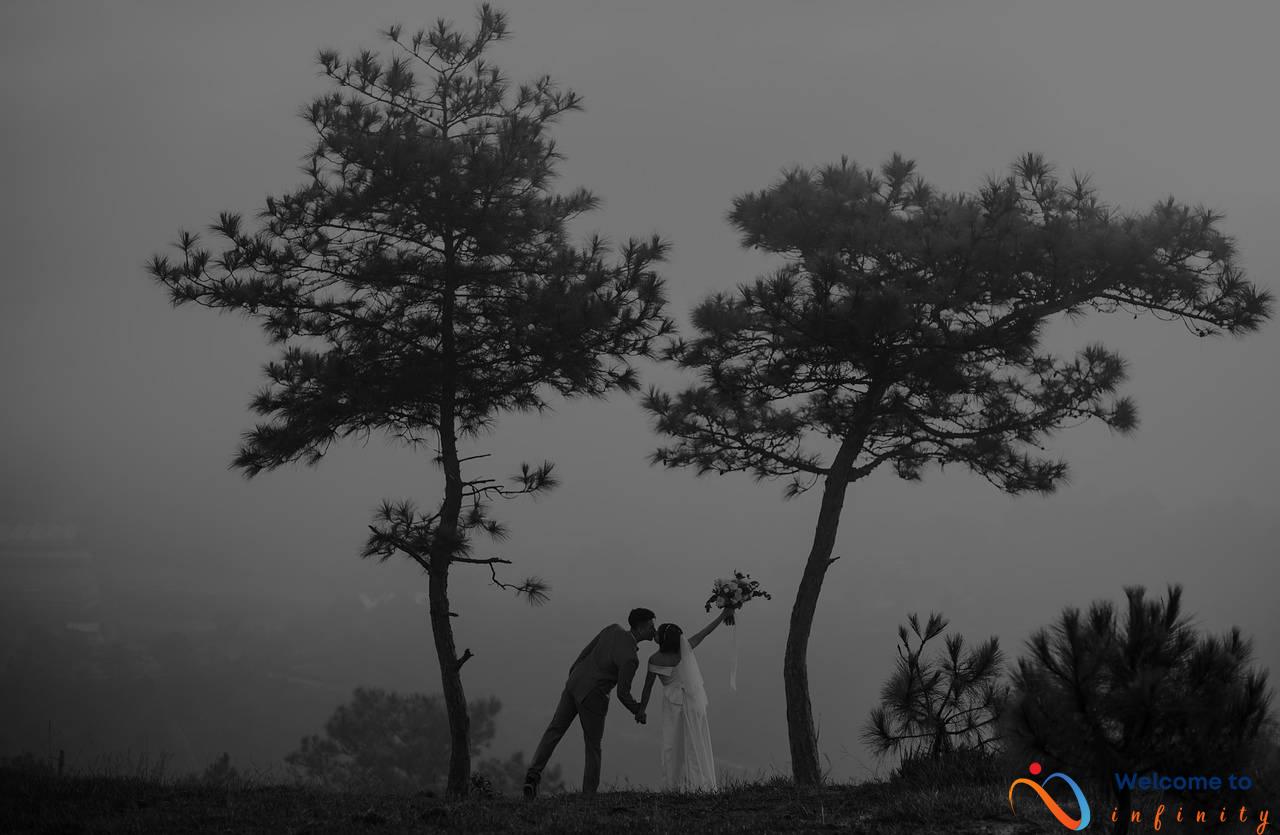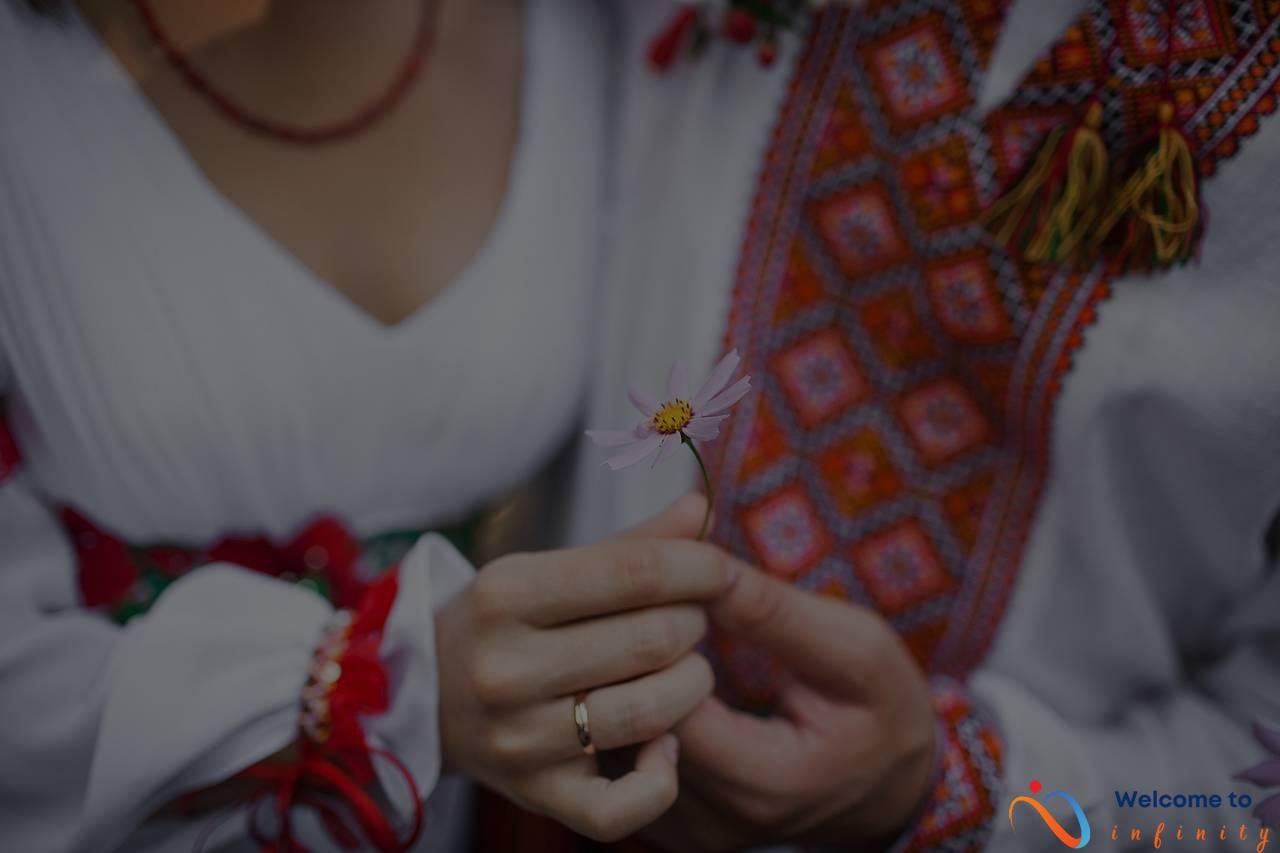Weddings are joyous occasions that are meant to be celebrated with loved ones. As couples plan their special day, they may find themselves wondering whether a destination wedding or a traditional wedding is the best option for them. Each wedding type has its own unique benefits and drawbacks, and it's important to consider all factors before making a decision.
The cost of a wedding can be a significant factor for many couples. Traditional weddings often involve renting a venue, catering, decorations, and other expenses that can add up quickly. On the other hand, destination weddings can be more cost-effective, as the couple can often take advantage of wedding packages offered by resorts and hotels. However, it's important to consider the cost of travel for all guests attending a destination wedding.
The guest list is an important consideration when planning a wedding. For traditional weddings, it's easier for guests to attend as they likely won't have to travel as far. In contrast, destination weddings may be more difficult for guests to attend due to travel costs and time off work. However, destination weddings often have a smaller guest list, which can make for a more intimate and memorable celebration.
- Pros:
- A unique and memorable experience
- Cost-effective if taking advantage of wedding packages
- Often have a smaller guest list
- Cons:
- Travel can be expensive and time-consuming for guests
- May be more difficult to plan from afar
- Language and cultural barriers in some locations
- Pros:
- Easier for guests to attend
- Access to trusted vendors and suppliers
- May feel more personal and sentimental to have the wedding in the couple's hometown
- Cons:
- Can be more expensive due to renting a venue and decorations
- May feel cookie-cutter or less unique
- Larger guest list may be less intimate
Planning a wedding involves a lot of logistics, and the type of wedding can impact the planning process. Destination weddings may be more challenging to plan from afar, and couples may need to rely on local vendors and suppliers. Traditional weddings have access to trusted vendors and suppliers, but the couple will need to coordinate the logistics of renting a venue and decorations.
- Research resorts and hotels that offer wedding packages
- Consider holding the wedding during the off-season to save money
- Provide guests with ample notice to book travel and time off work
- Research local venues and suppliers
- Create a detailed budget to avoid overspending
- Consider having the ceremony and reception in the same location to save on venue costs
Both destination weddings and traditional weddings offer unique experiences. Destination weddings are often more relaxed and allow guests to enjoy a vacation while celebrating the couple's special day. Traditional weddings often feel more formal and may have more traditional elements such as a church ceremony and sit-down dinner. The experience of the wedding itself should be a factor to consider when deciding between the two options.
Destination weddings provide a unique and memorable experience for both the couple and guests. The atmosphere is often more relaxed, and guests can enjoy the beauty and amenities of the location. Destination weddings may include activities such as snorkeling, zip-lining, and other adventure-based activities.
Traditional weddings often include more traditional elements, such as a sit-down dinner, dance, and formal ceremony. The experience is often more formal, and the wedding decorations and venue may reflect a more classic and elegant feel.
Ultimately, the decision between a destination wedding and a traditional wedding is a personal one that should be based on the couple's preferences, budget, and vision for their special day. By weighing the pros and cons of both options and seeking advice from vendors and suppliers, couples can make an informed decision that results in a perfect wedding day. No matter which option they choose, the most important thing is to celebrate their love and commitment with those they care about most.
Cost
When it comes to planning a wedding, costs can quickly add up. One of the biggest differences between a destination wedding and a traditional wedding is the overall cost. Destination weddings tend to be more expensive, mainly due to travel expenses and accommodations for both the couple and guests.
In a traditional wedding, the costs can vary depending on the size of the wedding and the location. However, with a destination wedding, the cost can quickly skyrocket. Couples must consider the expense of travel arrangements and accommodations for themselves and their guests. In some cases, a destination wedding may require the couple to foot the bill for some of their guests, which can add up quickly.
When it comes to the cost of a traditional wedding, the venue, dress, and catering are typically the most expensive components. While these costs can vary, a traditional wedding may still be more affordable for couples who have a tight budget. However, if the couple has their eyes set on a dream wedding destination, they may need to compromise on other aspects of the wedding to make it happen.
In summary, the cost of a wedding can be a significant factor for couples when deciding between a destination wedding and a traditional wedding. While a traditional wedding may be more affordable, destination weddings can be a once-in-a-lifetime experience that couples and their guests will never forget. Couples must weigh the costs and decide which type of wedding is best suited for their budget and their dream wedding vision.
Guest List
When planning a wedding, one of the biggest factors to consider is the guest list. With a destination wedding, the number of attendees may be smaller due to travel expenses and time off work. On the other hand, a traditional wedding in the couple's hometown may result in a longer guest list, as it is easier for people to attend without incurring extra costs.
For those who choose to have a destination wedding, it is important to keep in mind that not all guests may be able to make the trip. This could result in a smaller, more intimate wedding, which could be desirable for some couples. Additionally, those who do make the trip will likely be closer friends and family, resulting in a more meaningful celebration.
When it comes to traditional weddings, the couple may find it difficult to whittle down their guest list due to the ease of attendance and the lack of added travel expenses. However, a larger guest list can also lead to higher costs for the wedding overall.
Couples should also consider the impact on guest travel when choosing their wedding location. For a destination wedding, the couple may choose a location that requires extensive travel and accommodations for their guests, which could be seen as a burden. On the other hand, for a traditional wedding in the couple's hometown, most guests will not need to travel far, allowing them to save on expenses and time off work.
Overall, couples should carefully consider the size and travel accommodations for their guests when planning their wedding. It is important to remember that both types of weddings have their benefits and drawbacks, and the decision ultimately comes down to personal preference and what works best for the couple and their loved ones.
Destination Wedding Pros and Cons
Planning a destination wedding can be an exciting and unique way to celebrate your special day. However, before you book your tickets and pack your bags, it's important to weigh the pros and cons of having a destination wedding.
Benefits of having a destination wedding include the opportunity to celebrate your nuptials in a breathtaking setting, whether it's a beach in the Caribbean or a vineyard in Tuscany. It's also a chance to have a more intimate celebration with only close family and friends, rather than a large wedding with extended family and acquaintances. Destination weddings often provide a chance for the couple and their guests to take a vacation and make lasting memories together.
On the other hand, hosting a destination wedding can be a more complex and expensive affair. Travel expenses, accommodations, and other logistics can add up quickly. It can also be more difficult to coordinate with vendors and plan the event from afar. Additionally, some guests may not be able or willing to travel to a destination wedding, which can lead to hurt feelings and reduced attendance.
Ultimately, the decision of whether to have a destination wedding depends on the couple's priorities and preferences. If you're dreaming of an unforgettable, exotic wedding celebration and are willing to put in the extra effort and expense, a destination wedding might be the perfect choice for you. However, if you prefer a more traditional wedding with all your family and friends present, a local wedding might be a better fit.
If you do decide to have a destination wedding, it's important to plan ahead and consider the unique challenges that come with hosting an event in a different country or culture. Research local customs and laws, and enlist the help of a wedding planner or local vendors who can guide you through the process. With careful planning and attention to detail, your destination wedding can be a magical and unforgettable experience for you and your loved ones.
Traditional Wedding Pros and Cons
Hosting a traditional wedding has its own set of benefits and challenges. One of the biggest advantages of a traditional wedding is that it can take place in the couple's hometown or a local venue, which means there may be a level of familiarity and comfort that comes from getting married in a place that feels like home. Additionally, hosting a traditional wedding is often less expensive than a destination wedding because guests will not have to pay for travel expenses.
However, hosting a traditional wedding also comes with its own set of challenges. A couple may feel pressured to invite a larger guest list than they can afford, leading to strain on their budget. Additionally, planning a traditional wedding can be stressful, as the couple must coordinate with vendors and manage the logistics of their big day. Another potential drawback is that the atmosphere of a traditional wedding may feel more formal and less relaxed compared to a destination wedding.
Despite these challenges, there are ways couples can make the most of their traditional wedding experience. For example, they can incorporate personal touches that reflect their personalities and background, or choose a venue that is unique or historic. Couples can also consider hosting a smaller, intimate wedding, which may reduce pressure on the budget and create a more relaxed and intimate atmosphere.
In conclusion, while hosting a traditional wedding has its benefits and challenges, it ultimately comes down to the couple's personal preferences and priorities. By being mindful of their budget, selecting the right venue, and incorporating personal touches, couples can ensure that their traditional wedding is a meaningful, memorable, and joyful experience for everyone involved.
Logistics
Planning a wedding can be a daunting task, whether it is a destination wedding or a traditional wedding. Each type of wedding has its own unique set of logistics to consider, and careful planning is crucial to ensure a smooth and successful event.
Destination weddings require extensive planning to coordinate travel arrangements for guests and vendors. Couples will need to research and secure accommodations for their guests, arrange for transportation to and from the wedding venue, and plan for any necessary visas or travel documents.
Traditional weddings, on the other hand, may not require as much logistical planning when it comes to travel arrangements. However, couples will still need to consider factors such as venue availability, catering, and entertainment. They may also need to coordinate with vendors and professionals such as photographers, florists, and officiants to ensure a seamless event.
Overall, careful planning is essential for both types of weddings to ensure a successful and memorable event. Couples may want to consider hiring a wedding planner to help navigate through the logistical challenges and ensure that everything runs smoothly.
To help simplify the planning process for a destination wedding, couples can consider using online tools to organize and coordinate travel arrangements and wedding details. They may also want to provide their guests with a detailed itinerary and offer suggestions for local activities and attractions.
For a traditional wedding, couples should begin planning as soon as possible to secure their preferred venue and vendors. They may also want to consider incorporating cultural or family traditions into the event to make it more meaningful and personal.
In summary, planning a wedding requires a great deal of logistics, regardless of whether it is a destination wedding or a traditional wedding. Thoughtful planning and consideration of the unique challenges of each type of wedding can help couples create a successful and memorable event that they and their guests will cherish for a lifetime.
Destination Wedding Planning Tips
If you're planning a destination wedding, there are a few things to keep in mind to ensure everything goes smoothly. First, research the location thoroughly. Consider the local weather patterns and any potential language barriers. It's also important to research local requirements for obtaining a marriage license.
Next, start planning early. Most destination weddings require more advanced planning than traditional weddings, as vendors, accommodations, and transportation may be limited. Consider hiring a wedding planner who specializes in destination weddings to help with the logistics.
When choosing a venue for your wedding, consider the size of your guest list and the types of activities you want to offer. Many destination wedding venues offer a variety of excursions and local experiences that can make your wedding more memorable for guests.
Communication is essential when it comes to planning a destination wedding. Make sure to keep guests updated on travel arrangements, accommodations, and any potential changes to the itinerary. Consider creating a website or social media group to keep everyone on the same page.
Finally, don't forget to take care of yourself and your guests. Be sure to provide plenty of water, sunscreen, and other essentials for outdoor weddings. Consider hiring a local caterer who can provide authentic cuisine and beverages for a truly immersive experience.
By following these tips, you can ensure that your destination wedding is a success and a memorable experience for everyone involved.
Traditional Wedding Planning Tips
Planning a traditional wedding requires a lot of attention to detail and careful organization. Here are some tips to help couples simplify the process and ensure that their big day runs smoothly:
- Start planning early: Traditional weddings typically require booking a venue, selecting vendors, and managing many moving parts, so it's wise to start planning well in advance. Consider setting a timeline and breaking down tasks into manageable chunks, so you can tackle everything in a timely fashion.
- Define your budget: From the catering to the flowers, many expenses come with a traditional wedding. Before diving into the planning process, establish a budget that works for you and your partner. From there, prioritize the most important elements and cut costs where you can without compromising your vision.
- Find the perfect venue: A traditional wedding typically takes place in a church, reception hall, or other local venue. Be sure to search for options that accommodate the size of your guest list and align with your vision for the big day. Keep logistics in mind, too – make sure the venue offers ample parking and is convenient for your guests to get to.
- Choose your vendors carefully: From the photographer to the wedding cake baker, selecting reliable and high-quality vendors is crucial. Do your research, read reviews, and ask for references before making any decisions. Don't be afraid to negotiate prices, too – many vendors are open to discussing fees based on specific budgets.
- Plan the ceremony and reception details: A traditional wedding ceremony usually involves a rehearsal, followed by a walk down the aisle and an exchange of vows. The reception often includes a sit-down dinner and dancing. Be sure to plan all of the details, from the ceremony readings to the music playlist. Consider hiring a wedding planner for help organizing all of these elements.
- Create a backup plan: No matter how carefully you plan, unexpected issues can arise on your wedding day. Talk with your vendors about a backup plan in case of inclement weather or other issues, and make sure you're prepared with extra supplies or resources if necessary. This will help you stay calm and focused, even if things don't go exactly according to plan.
By following these tips, couples can simplify the traditional wedding planning process and create a beautiful, memorable celebration that reflects their unique style and personalities. Remember, the most important element is to enjoy the moment and savor the beginning of your new life together.
Experience
When it comes to the overall wedding experience, destination weddings and traditional weddings offer vastly different atmospheres. Destination weddings take place in unique and often picturesque locations, providing a memorable and unforgettable experience for the couple and their guests.
Destination weddings are perfect for couples who love to travel and want to make their wedding more than just a one-day affair. These weddings provide ample opportunity for adventure and exploration, whether it's a snorkeling excursion or a hiking trip in the mountains.
On the other hand, traditional weddings offer a more familiar and comfortable experience for many couples. These weddings take place in the couple's hometown or a local venue, providing a sense of familiarity and tradition.
In terms of activities and events, destination weddings often have a more relaxed and casual atmosphere. Couples can opt for a beach wedding, sunset dinner, and a beach party, making it a fun and festive experience for everyone. Traditional weddings, on the other hand, usually have a more formal atmosphere, with classic elements like a church ceremony, formal dinner, and dancing.
Ultimately, the overall experience of a destination wedding or a traditional wedding depends on the couple's preferences and vision for their big day. Whether it's a laid-back beach wedding or a classic church ceremony, the most important thing is to create an unforgettable experience that reflects the couple's love and personality.
Destination Wedding Experience
Destination weddings are becoming more popular for couples who want to exchange their vows in a unique and unforgettable location. The atmosphere of a destination wedding is typically relaxed, intimate, and filled with excitement. The beautiful backdrop of a tropical island or a stunning European city can add a magical element to the wedding. Guests often comment on how special and memorable the destination wedding experience is compared to traditional weddings.
Activities are another element that sets destination weddings apart from traditional weddings. Couples can plan excursions or activities for their guests to enjoy leading up to the wedding day. Some popular examples include snorkeling or scuba diving in the ocean, touring a local winery, or visiting historical landmarks. These activities create a bonding experience for guests and make the wedding more than just a single day event.
The overall feeling of a destination wedding is one of adventure and excitement. Both the couple and their guests are on a journey together, exploring a new destination and celebrating the union of love. It is a time to escape the stresses of everyday life and fully immerse oneself in the beauty and culture of the location. Destination weddings are perfect for couples who want to have a memorable wedding experience that they'll cherish for a lifetime.
However, it is essential to keep in mind the logistics of planning a destination wedding. It requires more coordination, time, and travel arrangements than a traditional wedding. Couples must consider the weather, local customs, and legal requirements when planning a destination wedding. Additionally, not all guests may be able to attend due to financial or travel constraints.
In conclusion, the destination wedding experience is one that is filled with adventure, fun activities, and unforgettable memories. Couples who prioritize unique experiences and want to share a special journey with their loved ones should consider a destination wedding. However, it requires careful planning, coordination, and consideration for all guests. Nonetheless, the end result is well worth the effort as it becomes a once in a lifetime experience for everyone involved.
Traditional Wedding Experience
A traditional wedding is often characterized by a formal ceremony held in a church or another local venue, followed by a reception where family and friends gather to celebrate the newlyweds. The atmosphere of a traditional wedding is typically more formal and elegant than that of a destination wedding, with a focus on classic wedding traditions.
Activities at a traditional wedding may include a cocktail hour preceding dinner, speeches from the wedding party and family members, and a first dance between the newlyweds. Guests may also enjoy dessert, open bar, and dancing at the reception, with music played by a live band or DJ.
The overall feeling of a traditional wedding is one of timelessness and elegance. From the bride's white gown to the groom's tuxedo, guests are often dressed to the nines, adding to the sense of grandeur. Many traditional weddings also incorporate religious or cultural elements, such as a prayer or traditional dance, adding a deeper meaning and symbolism to the ceremony.
While the atmosphere of a traditional wedding is more formal, it can also provide a greater sense of intimacy for the couple and their loved ones. Because guests are often close friends and family, the celebration feels more personal and sentimental.
In conclusion, a traditional wedding offers a classic and elegant atmosphere, complete with formal ceremonies and time-honored traditions. While the feeling may be more formal, the intimate gathering of family and friends adds a sense of warmth and closeness to the celebration.
Final Thoughts
In summary, both destination weddings and traditional weddings come with their own set of benefits and drawbacks. Destination weddings offer a unique and memorable experience for not only the couple but also their guests. However, they can be more expensive and require more planning and coordination. Traditional weddings, on the other hand, offer a more classic and familiar atmosphere but can be limited in terms of creativity and flexibility.
When deciding which type of wedding to have, it's important to consider your budget, guest list, and desired wedding experience. If you're leaning towards a destination wedding, make sure to do your research and choose a location that not only fits your vision but also makes travel and accommodations easy for your guests. For traditional weddings, work closely with your venue to add personal touches and make the space your own.
No matter what type of wedding you choose, don't forget to prioritize what's most important to you and your partner. Whether it's a grand celebration or an intimate gathering, the right wedding is one that reflects your love story and creates lasting memories.












